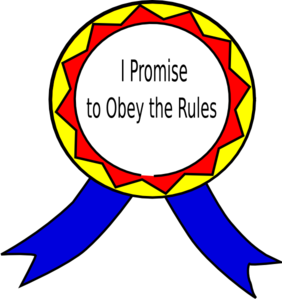
If you read my last post, you viewed a contest from the inside out, looking at the entrants from a judge's position. Clearly, there are some lessons to be learned.
First and foremost, you must plan and complete your entry according to the directions. In the case of the essays, there was a 700-1000 word limit and essays were to be submitted as either MS Word documents or PDF files. There was a deadline for submission as well.
Some contests will be even more specific Perhaps an entry must be double spaced, paginated, with the document name on each page. Your identity information needs to be submitted somewhere. Is is a separate page, on an entry form, on each page? How long should your entry be? All the details for submission are important.
I recently entered a contest where my manuscript actually received scoring points based on whether or not I followed all the rules. The rules are there for a reason. Read them carefully and follow them to the letter.
Then, of course, make sure your entry meets the other requirements. If you are answering a question or posing a problem solution, as the students were, make sure you read the topic carefully and then address all parts of the questions posed. If you are required to submit a short story, make sure what you've written really is a short story. Know the literary format you are offering and write an piece that suits the demands.
Clean copy matters. Check and recheck for spelling errors. Proofread and, if you can, have someone else proofread your copy. Spelling counts, and so does grammar. Don't depend on MS Words grammar/spellchecker or even such programs as Grammarly. I've used both and neither one picks up all the errors. They are good starts, but in the end, a good human editor does the best job.
An outside reader is always an asset. Quite often when we write, we think we are saying one thing when, in reality, our words are saying something quite different. When my students in class used to complain about how I graded a paper when their words just didn't make sense, they would say, "Well, you know what I meant." I may have known, but my reply was, "I only know what you wrote."
As far as content goes, there isn't much advice I can give beyond, "Be true to your voice." Avoid the cliche' and cherish your own original ideas. Don't try to copy someone else's style unless it's part of the contest. ("Write a Story in the Style of William Shakespeare") If you win, and the world expects more writing from you, then you will be expected to be able to write with the same quality and style again, so the more "you" the writing is the better. There's no reason to pretend you are someone or something else than you honestly are.
I think, especially for beginning writers, this is often a real challenge. Finding your "voice" is not always easy. That's one reason I usually read what I write aloud. Often, when I hear myself saying the words I discover what works and what doesn't. "Tell me a story. Write what you would say." Flowery word and phrases don't score points unless they are essential to the story. Don't be afraid to experiment with words, but use them wisely and well.
Will you win? That all depends on the judge, and, as you saw from my last post, a portion of judging is always subjective. Losing is never easy, but remember, there's always another contest, another judge and another opportunity. Just keep on writing.
No comments:
Post a Comment